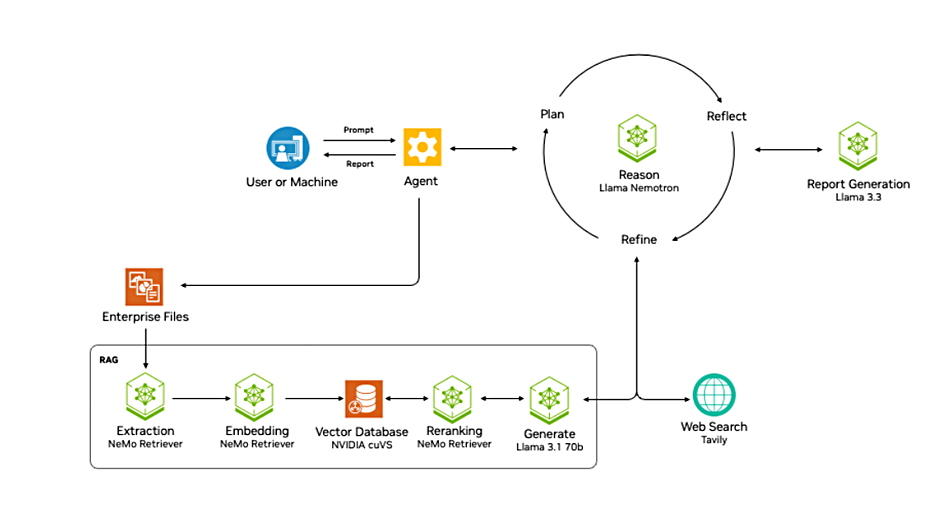VAST Data integrates Nvidia AI-Q framework to accelerate AI agent development
VAST Data is incorporating Nvidia's AI-Q blueprint into its storage platform to enable customers to build and deploy AI agents more efficiently, leveraging Nvidia's GPU and software ecosystem.

VAST Data has announced its integration with Nvidia’s AI-Q framework, a blueprint designed to streamline the development of AI agents. This collaboration aims to provide enterprises with the infrastructure needed to build and deploy advanced AI systems.
What is AI-Q?
AI-Q is a reference architecture that combines:
- Nvidia GPUs
- Partner storage platforms (like VAST Data)
- Software tools (Agent Intelligence Toolkit)
- Nvidia’s Llama Nemotron reasoning models
- NeMO retriever
- NIM microservices
The Agent Intelligence Toolkit is an open-source library for connecting and optimizing AI agent teams, compatible with frameworks like CrewAI and Microsoft Azure AI Agent Service.
VAST Data’s Role
Jeff Denworth, Co-Founder at VAST Data, emphasized:
"The agentic era is going to challenge every assumption about the scale, performance, and value of legacy infrastructure... By embedding NVIDIA AI-Q into a platform purpose-built for the AI era, we’re delivering the scalable, high-performance data platform required to power the next generation of enterprise AI."
VAST’s storage system will serve as a real-time data pipeline, processing raw data for AI agents. Key features include:
- Multi-modal RAG (unstructured/semi-structured data)
- Structured data integration (ERP, CRM, etc.)
- Fine-grained access control
- Real-time optimization via Nvidia’s toolkit

Industry Impact
Justin Boitano, Nvidia’s VP of Enterprise AI, stated:
"AI-driven data platforms are key to helping enterprises put their data to work... Together, NVIDIA and VAST are creating the next generation of AI infrastructure."
Jon Mao, VAST’s VP of Business Development, blogged about the partnership’s potential to deliver "faster, smarter outcomes" through AI agent systems.
Analyst Perspective
The move signals a shift in storage requirements for AI workloads. Beyond just GPUDirect support, systems now need deeper integration with AI frameworks like AI-Q. More storage vendors are expected to adopt similar blueprints as AI agent development accelerates.
Related News
AWS extends Bedrock AgentCore Gateway to unify MCP servers for AI agents
AWS announces expanded Amazon Bedrock AgentCore Gateway support for MCP servers, enabling centralized management of AI agent tools across organizations.
CEOs Must Prioritize AI Investment Amid Rapid Change
Forward-thinking CEOs are focusing on AI investment, agile operations, and strategic growth to navigate disruption and lead competitively.
About the Author

Dr. Sarah Chen
AI Research Expert
A seasoned AI expert with 15 years of research experience, formerly worked at Stanford AI Lab for 8 years, specializing in machine learning and natural language processing. Currently serves as technical advisor for multiple AI companies and regularly contributes AI technology analysis articles to authoritative media like MIT Technology Review.